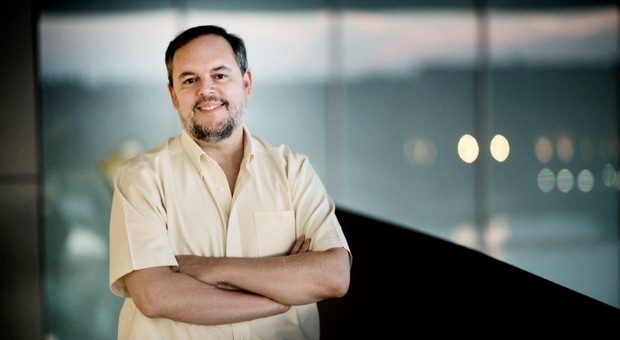Dr. Stephen Elledge wins the 2015 Lasker Award

Director of the Jane Coffin Childs Memorial Fund’s Board of Scientific Advisors, Dr. Stephen Elledge, was awarded the 2015 Lasker Award for his discoveries related to the DNA-damage response in cells. He shares the award with Dr. Evelyn Witkin, Professor Emerita at Rutgers University.
For Dr. Elledge, the award recognizes more than two decades of his research in this field, which began as an accidental discovery he made in 1987 as a postdoctoral fellow at Stanford. Dr. Elledge and his advisor, Ronald Davis, found that a specific type of mRNA increased within yeast cells when DNA was damaged.
During the 1960s and 1970s, Dr. Evelyn Witkin had discovered that bacteria respond to DNA damage and had teased out key details describing the process. Other scientists found that eukaryotes also respond to DNA damage, but the exact mechanism was unknown.
The mRNA Dr. Elledge measured codes for a subunit of the ribonucleotide reductase enzyme, which helps make DNA precursors. Knowing this, he hypothesized that a signaling system in eukaryotes detects errors and responds by activating several DNA synthesis and repair genes. The idea was met with skepticism by his colleagues. At the time, signaling was understood to originate outside cells.
To test his model, Dr. Elledge and his research team used a tool to indicate when ribonucleotide reductase is active, and then they used it to identify yeast strains with variations in DNA repair responses. One strain in particular suffered from a defective DNA synthesis enzyme, and it activated DNA repair without experiencing additional DNA damage. This finding supported the idea that hiccups in DNA synthesis activate repair enzymes. Another strain failed to activate repair genes despite damaged DNA, and further experiments with it revealed that a kinase, DUN1, is required to activate repair genes.
Since those initial discoveries, Dr. Elledge and others working in the field identified other players in the pathway, both in yeast and mammalian cells. Dr. Elledge discovered that a kinase known as ATR, and its partner, ATRIP, sense DNA replication errors and bind to single-stranded DNA coated with replication protein A, thus signaling DNA damage and stalled replication forks. And, proteomic analysis identified more than 1,000 proteins that are modified in the presence of DNA damage, showing just how dramatically DNA damage changes cell physiology.
Dr. Elledge says he’s always been motivated by questions, and that questioning began at a very young age, by playing with a chemistry set that once ended in an small explosion that stained his grandmother’s ceiling. He followed his curiosity to the University of Illinois, as the first of his family to go to college, and then went on to complete his PhD at MIT and his postdoc at Standford. His first faculty appointment was at Baylor College of Medicine.
Today, Dr. Elledge is an HHMI investigator at Brigham and Women’s Hospital and professor of genetics at Harvard Medical School, where he mentors about 20 postdocs and graduate students, including two JCC Fellows. Shawna Guillemette investigates the role of SASP regulator GATA4 in senescence and cancer, and former JCC Fellow Andrew E. H. Elia studies regulatory protein modifications in the DNA damage response.